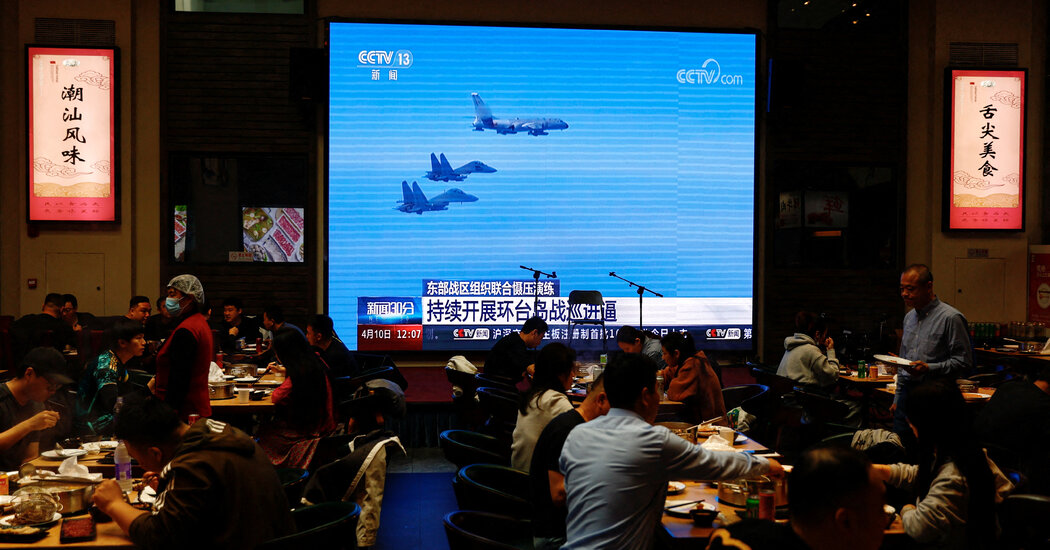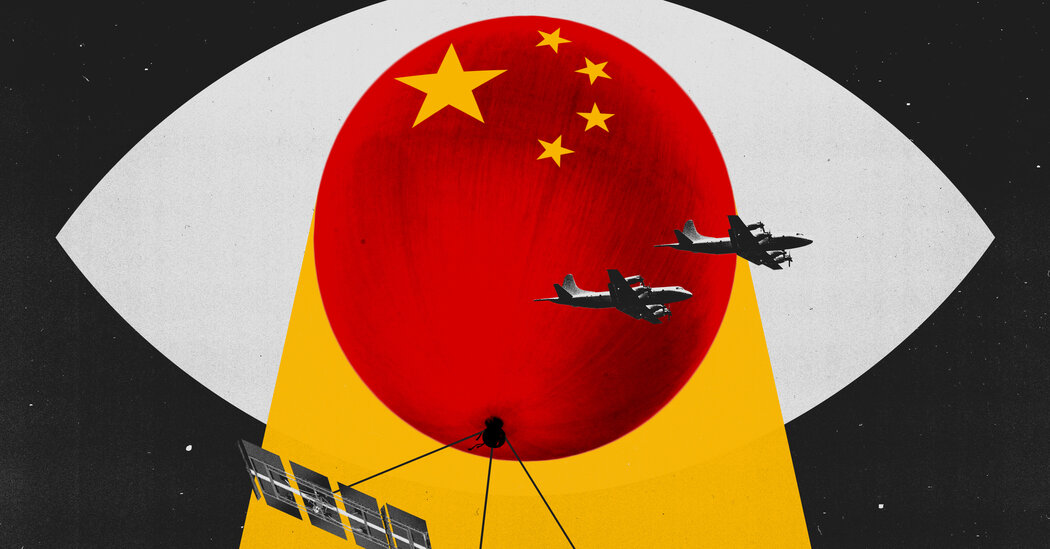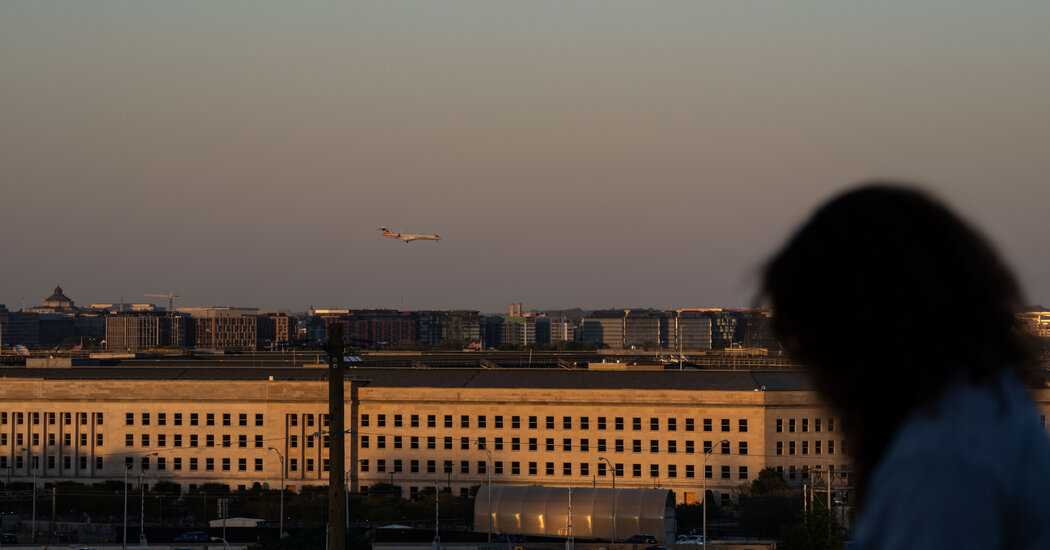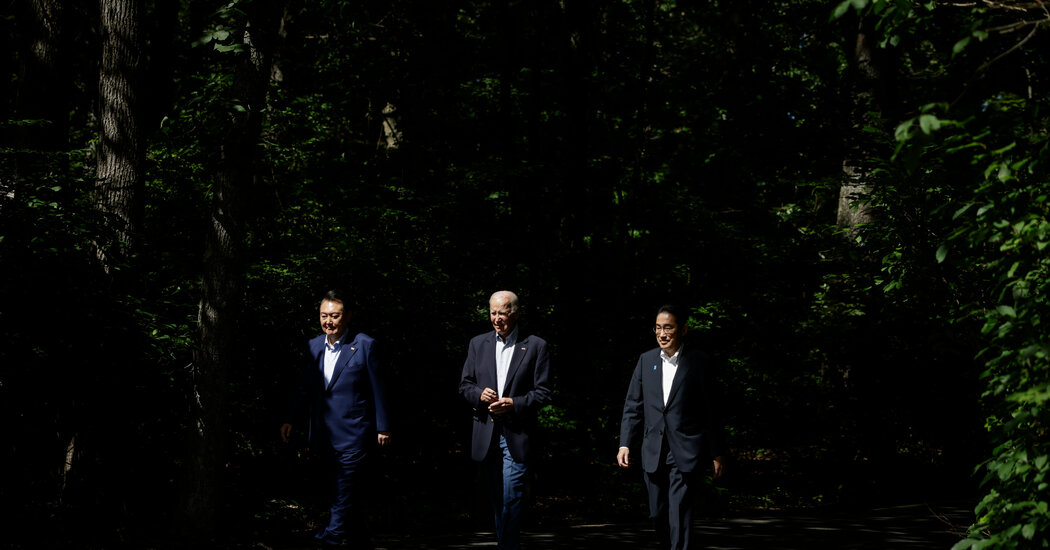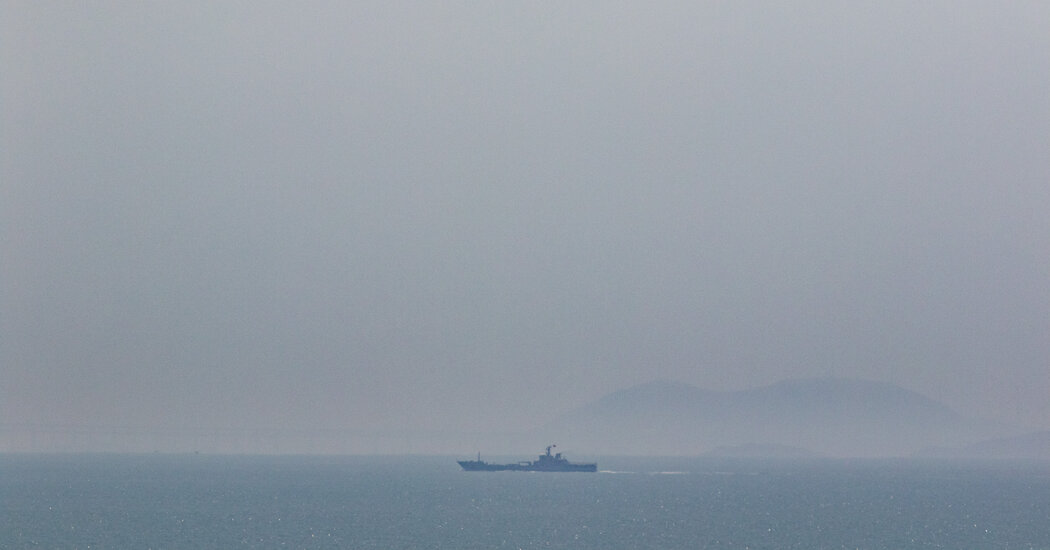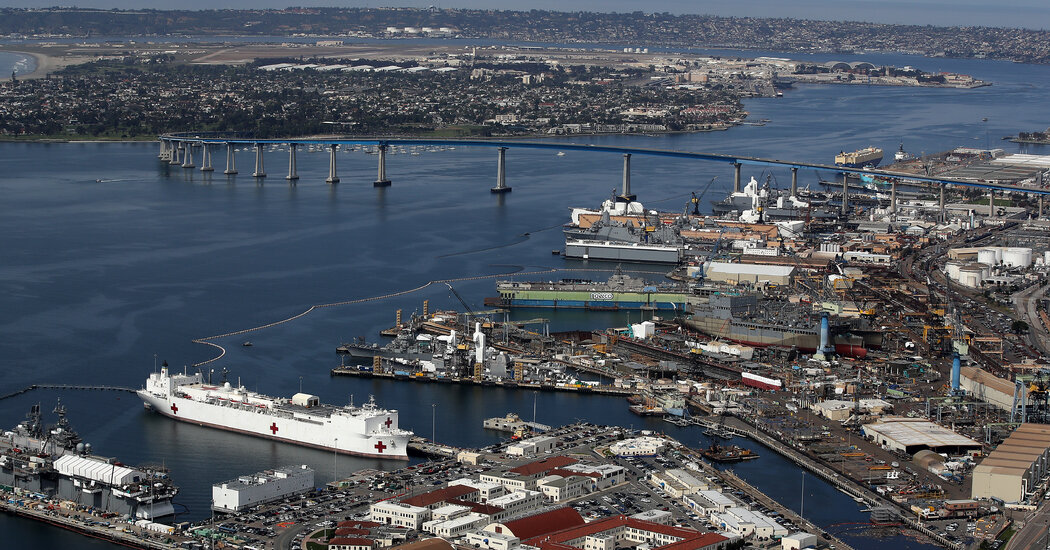They call it Q-Day: the day when a quantum computer, one more powerful than any yet built, could shatter the world of privacy and security as we know it. It would happen through a bravura act of mathematics: the separation of some very large numbers, hundreds of digits long, into their prime factors. That might sound like a meaningless division problem, but it would fundamentally undermine the encryption protocols that governments and corporations have relied on for decades. Sensitive information such as military intelligence, weapons designs, industry secrets and banking…
Tag: United States Defense and Military Forces
China’s Military is Making Risky Moves and Adding Nuclear Warheads, U.S. Says
Risky Maneuvers Since the fall of 2021, the Pentagon report says, the United States has recorded more than 180 intercepts of U.S. aircraft by Chinese military forces in the region. Beijing has long bristled at the U.S. military aircraft and ships that operate in international skies and seas near China. China has been increasingly assertive in the region, from building military infrastructure in the disputed South China Sea to buzzing planes flown by the United States, Canada and other Western allies. Such moves risk a midair crash and a wider…
The Philippines’ Tension With China Crosses New Line in South China Sea
The video may seem too simple, too understated to mark a serious international incident in the South China Sea: a quick clip of a diver using a knife to cut a section of rope underwater. But that diver was with the Philippine Coast Guard, and the rope was part of a sea barrier placed by Chinese forces to keep Philippine boats away from an area they had a legal right to fish in. In that moment, the Philippines took one of the most forceful steps yet in contesting China’s unrelenting…
Blasting Bullhorns and Water Cannons, Chinese Ships Wall Off the Sea
The Chinese military base on Mischief Reef, off the Philippine island of Palawan, loomed in front of our boat, obvious even in the predawn dark. Radar domes, used for military surveillance, floated like nimbus clouds. Lights pointed to a runway made for fighter jets, backed by warehouses perfect for cruise missile launchers. More than 900 miles from the Chinese mainland, in an area of the South China Sea that an international tribunal has unequivocally determined does not belong to China, cellphones pinged with a message: “Welcome to China.” The world’s…
In Risky Hunt for Secrets, U.S. and China Expand Global Spy Operations
As China’s spy balloon drifted across the continental United States in February, American intelligence agencies learned that President Xi Jinping of China had become enraged with senior Chinese military generals. The spy agencies had been trying to understand what Mr. Xi knew and what actions he would take as the balloon, originally aimed at U.S. military bases in Guam and Hawaii, was blown off course. Mr. Xi was not opposed to risky spying operations against the United States, but American intelligence agencies concluded that the People’s Liberation Army had kept…
Pentagon Vows to Move Quickly to Buy More Drones, Citing China Threat
The Pentagon announced on Monday that it would buy thousands of unmanned drones and other autonomous devices over the next two years, adding that it had been far too slow to embrace new technology that is “small, smart, cheap” and that could bolster the U.S. military as it prepares for possible future conflict with China. The commitment came from Kathleen Hicks, the deputy defense secretary. She said in a speech at a gathering of military contractors that the Pentagon would soon change how it buys the kind of autonomous devices…
U.S.-Japan-South Korea Security Pact Likely to Deepen China’s Dismay
Ever since members of the North Atlantic Treaty Organization sprang into action to help Ukraine try to thwart Russia’s invasion last year, China has warned about a similar U.S.-led security alliance forming in Asia that would seek to hobble Beijing’s ambitions and provoke a confrontation. President Biden’s Camp David summit on Friday with the leaders of Japan and South Korea most likely reinforces Beijing’s perception. The talks saw Japan and South Korea put aside their historical animosities to forge a defense pact with the United States aimed at deterring Chinese…
U.S. Seals Security Pact With Japan and South Korea as Threats Loom
The new three-way security pact sealed by President Biden and the leaders of Japan and South Korea at Camp David on Friday was forged with threats by China and North Korea in mind. But there was one other possible factor driving the diplomatic breakthrough: Donald J. Trump. While the former president’s name appeared nowhere in the “Camp David Principles” that the leaders issued at the presidential retreat, one of the subtexts was the possibility that he could return to power in next year’s election and disrupt ties with America’s two…
China’s Military, ‘Chasing the Dream,’ Probes Taiwan’s Defenses
China has been steadily intensifying military pressure on Taiwan over the past year, sending jets, drones, bombers and other planes farther and in greater numbers to extend an intimidating presence all around the island. Chinese naval ships and air force planes have been edging closer to Taiwan’s territorial seas and skies, probing the island’s vigilance and trying to wear down its military planes and ships. Chinese forces have also been operating more frequently in skies and waters off the island’s eastern coast, facing the West Pacific. China’s increasing presence there…
Two U.S. Navy Sailors Charged With Helping Chinese
Two Navy sailors in Southern California were arrested and accused of providing military secrets and sensitive information to Chinese intelligence officers, according to a pair of federal indictments unsealed on Thursday. Jinchao Wei, known as Patrick Wei, 22, was charged with spying for the Chinese under the Espionage Act. Mr. Wei serves aboard the Essex, an amphibious assault ship moored at Naval Base San Diego, which is the home of the Pacific Fleet. As a machinist’s mate, investigators said, he had clearance that gave him access to sensitive national security…

